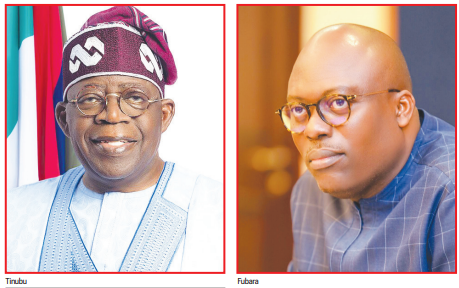Throughout history, leadership has never been measured by mere occupancy of office but by the ability to act decisively in the face of disorder.
From the ancient philosopher-kings of Plato’s Republic, tasked with safeguarding justice, to Sun Tzu’s Art of War, which emphasizes preemptive action against internal threats, it has been clear that governance is not a passive role but an active duty.
John Locke’s Second Treatise on Government reminds us that when those entrusted with power begin to subvert the institutions that sustain governance, superior authority must intervene to restore order.
It is in this context that President Bola Ahmed Tinubu’s intervention in Rivers State must be understood—not as a political maneuver, but as a constitutional necessity to prevent the descent into anarchy.
His actions, in invoking Section 305 of the Nigerian Constitution, affirm the fundamental role of the presidency: not as a bystander to disorder but as the ultimate custodian of constitutional integrity and national stability.
Assault on democracy
Democracy is fragile, not because of external threats alone, but because of the paradox it creates: it can elevate to power individuals who, under its very banner, seek to undermine it. Aristotle, in Politics, warned of democracy’s vulnerability to self-destruction when those elected to govern refuse to be governed by laws.
This paradox has played out in Rivers State, where an elected executive governor, entrusted with the duty of upholding democratic governance, has instead orchestrated the systematic dismantling of the legislative arm of government.
The illegal removal of 27 duly elected legislators, replaced by a token assembly of four loyalists, is not just an abuse of power—it is the subversion of constitutional democracy. Alexis de Tocqueville’s Democracy in America foresaw this risk, noting that “when the legislative power is annihilated, the executive alone remains to dominate, and tyranny becomes inevitable.”
The governor of Rivers State has thus sought to establish personal rule within a democratic structure, a perversion of the very principles that justify his mandate. The role of a governor is not to manufacture crisis to prove his popularity.
Electoral legitimacy does not grant immunity from the rule of law. The premise of democracy is not just winning elections but governing within the legal framework that sustains democracy itself. Even the most popular leader ceases to be legitimate the moment he subverts the institutions that check executive power.
Looming economic and security catastrophe
Beyond the assault on democracy, Rivers State faces an existential threat to its economic and security stability.
The wanton destruction of critical oil and gas infrastructure, allowed to fester under the governor’s watch, threatens not just the state but the entire Nigerian economy. Rivers State is an economic artery of the nation—its oil wealth is not just local revenue, but a pillar of national fiscal stability.
The consequences of inaction are clear: reduced crude oil output, loss of investor confidence, and further strain on the nation’s already fragile economic recovery.
Edmund Burke’s timeless warning remains relevant: “The only thing necessary for the triumph of evil is for good men to do nothing.”
Tinubu’s action is a reaffirmation that the President of Nigeria cannot afford to be a spectator while a reckless governor drives the nation toward economic ruin.
Justification of presidential authority
The Nigerian Constitution provides not only the framework for democratic governance but also the mechanisms to prevent its collapse. Under Section 305, the President is empowered to declare a state of emergency when a governor’s actions threaten the stability and security of the nation.
This provision exists precisely to address situations like Rivers State, where a state executive, instead of governing responsibly, manipulates political structures, incites disorder, and enables economic sabotage. Tinubu ’ s intervention is therefore not a threat to democracy but a defense of it.
It is in line with the Magna Carta’s principle of accountable governance, which asserts that rulers must govern within established laws, and it echoes the U.S. presidential model, which Nigeria emulated, wherein the President, as Commander-in-Chief, is duty-bound to intervene when state governments violate constitutional order.
A statesman’s duty in the face of disorder
History has shown that nations that fail to check lawlessness at its inception often descend into irreversible chaos.
The fall of the Roman Republic, the collapse of Weimar Germany, and even the military takeovers of Africa’s post independence era all share a common pattern: the refusal to act when democracy was first undermined.
President Tinubu’s action in Rivers State is not an overreach—it is a necessary assertion of the principles that sustain Nigeria’s democratic experiment.
Leadership demands firmness in the face of disorder, decisiveness in times of democratic subversion, and unwavering commitment to national stability.
By stepping in before Rivers State spiraled into full-scale anarchy, Tinubu has acted not as a politician, but as a statesman—a custodian of Nigeria’s democratic and economic survival.















